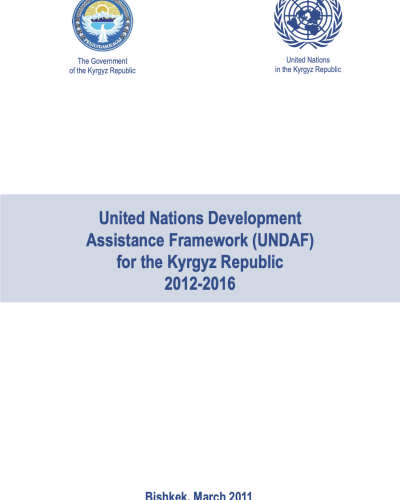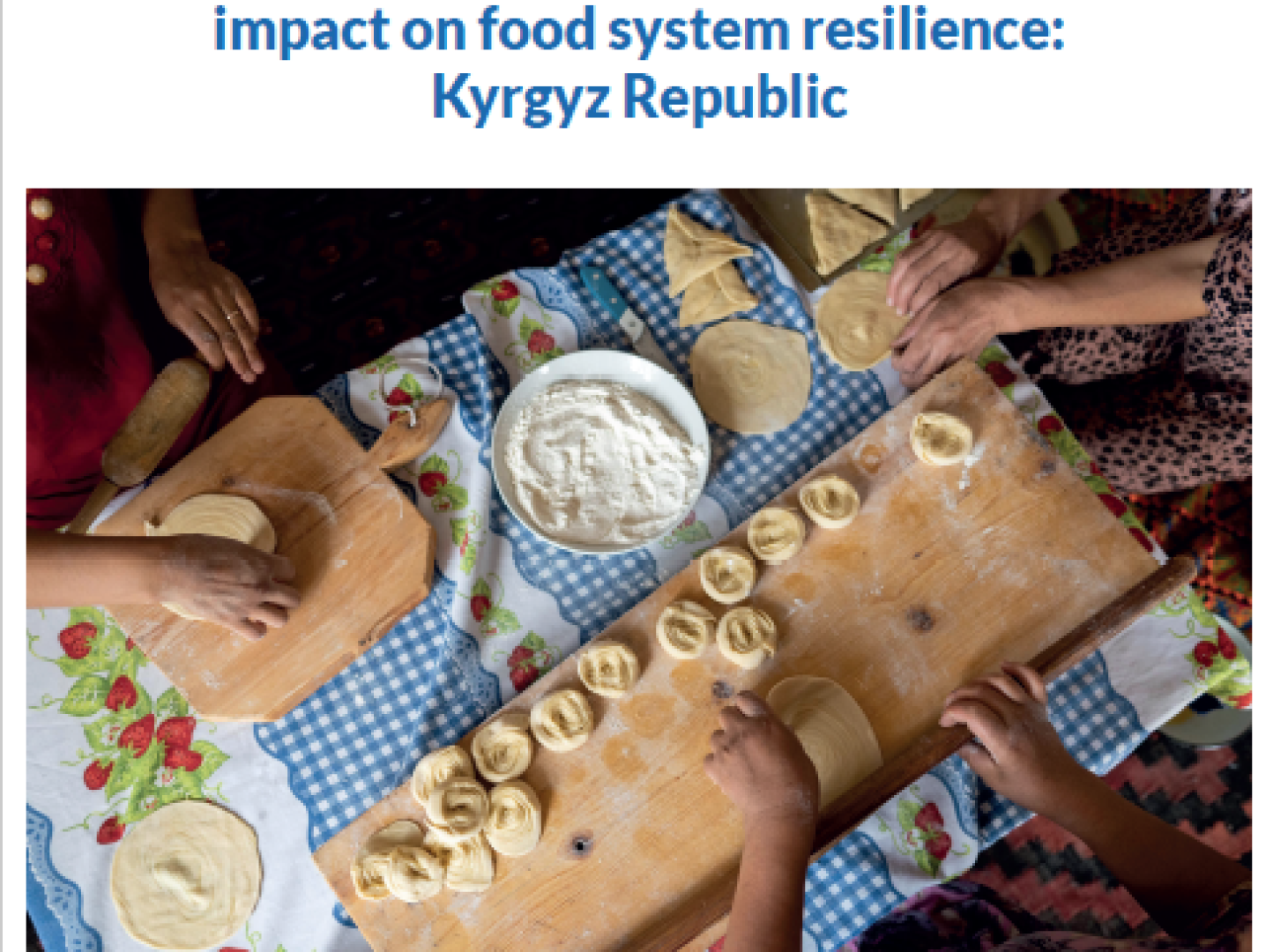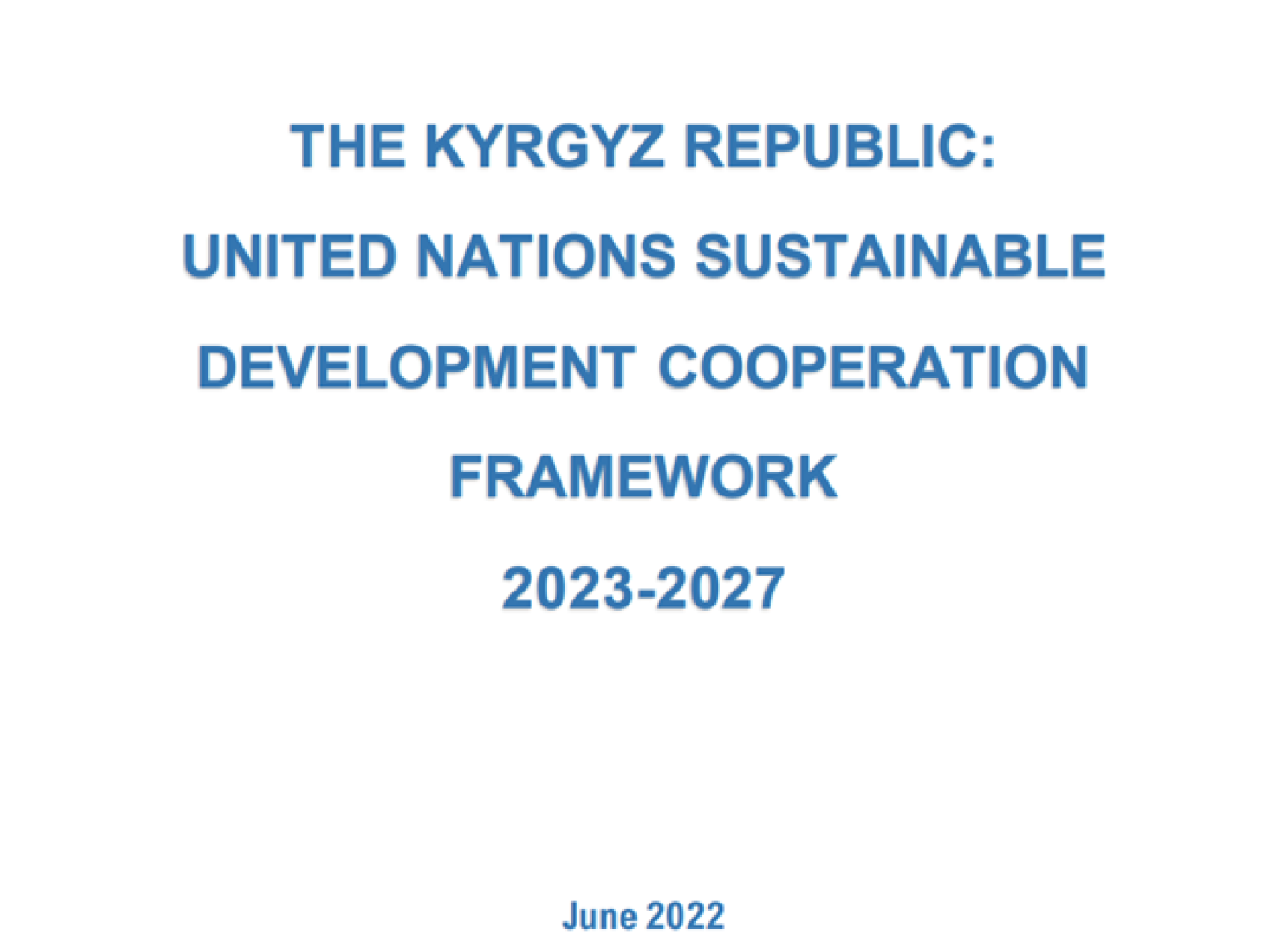United Nations Development Assistance Framework (UNDAF) for the Kyrgyz Republic 2012-2016

The United Nations Development Assistance Framework (UNDAF) is the result of an ongoing consultative process intended to analyze how the United Nations can most effectively respond to the Kyrgyz Republic’s national priorities and needs in a transitional context that has been affected by conflict. It is guided by the goals and targets of the Mil- lennium Declaration, which has been endorsed by the Government and national programmes/plans, and by other rel- evant documents, including strategic addresses by the President of the Kyrgyz Republic, the Government Programme approved by Jogorku Kenesh (Parliament) of the Kyrgyz Republic in December 2010, Action Plan “Economy and Security” to implement the Program of the Government of the Kyrgyz Republic endorsed by the Government in Janu- ary 2011. The UNDAF translates these into a common operational framework for development activities upon which individual United Nations organizations will formulate their actions for the period 2012-2016.
Peace and stability toward sustainable development represents the cornerstone for the UNDAF; under this over- arching goal, three inter-related areas of cooperation have emerged as particularly critical for United Nations support to the people and Government of the Kyrgyz Republic during this five-year period: (1) Peace and Cohesion, Effective Democratic Governance, and Human Rights, including deepening State-building, security and justice for all; (2) Social Inclusion and Equity, encompassing issues of social protection, food security, education and health; and (3) Inclusive and Sustainable Job-Rich Growth for Poverty Reduction, with particular attention to women and youth, as well as to vulnerable groups and disaster-prone communities. In all three, the United Nations Country Team of- fers comparative advantages with regard to achieving further tangible progress toward the Millennium Development Goals, drawing on its values, successful global knowledge base, best practices and lessons learnt; its strong normative mandate and track record in the Kyrgyz Republic; its neutrality; and its ability to encourage efficient coordination and facilitate accountability among donors.



